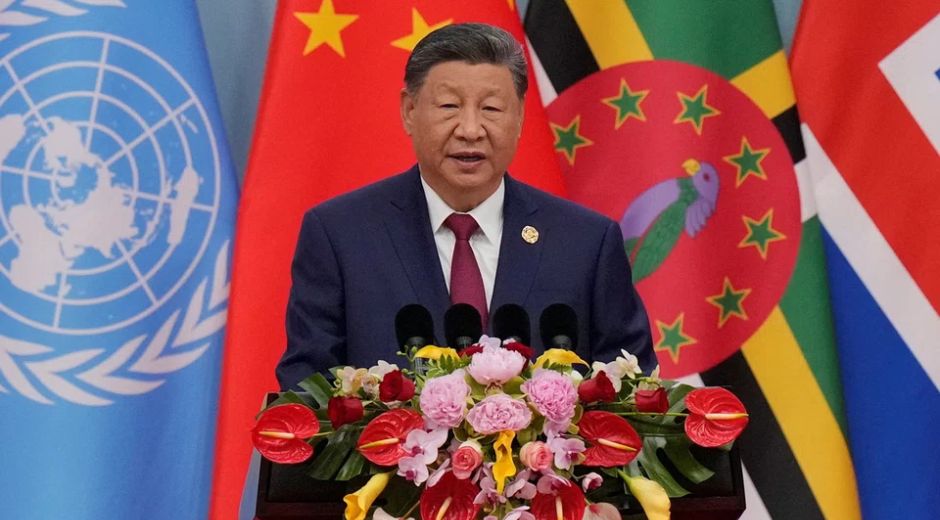Xi Jinping Advocates for Greater Inclusion of Women in Governance
Xi Jinping Advocates for Greater Inclusion of Women in Governance
At the Global Leaders’ Meeting on Women held in Beijing on October 13–14, 2025, Xi Jinping emphasized the importance of increasing women’s participation in governance. This summit, organized in collaboration with UN Women, brought together leaders from various nations to discuss strategies for advancing gender equality and women’s empowerment globally. Xi Jinping’s address underscored China’s commitment to fostering an inclusive political environment that reflects the diverse contributions of its population.
The Current Landscape of Women's Representation in China
Despite significant strides in women’s education and workforce participation—women constitute approximately 50% of university students and 43% of the total employed population in China—female representation in top political leadership remains limited. In 2022, there were no women on China’s Politburo Standing Committee or among the 24 Politburo members, a situation that has drawn criticism from international observers. For broader discussions on governance trends and political analysis, resources like Business Forum Hub provide valuable insights.
Xi Jinping acknowledged these disparities during his speech, highlighting the need to broaden channels for women’s participation in political and decision-making processes. He emphasized that promoting women’s involvement in governance is essential for achieving comprehensive national development and addressing challenges such as demographic shifts and economic transformation.
Xi's Proposals for Advancing Women's Participation
In his keynote address, Xi Jinping outlined four key proposals aimed at accelerating the development of women’s rights and enhancing their role in governance:
-
Fostering an Enabling Environment for Women’s Growth: Creating conditions that support women’s development across various sectors, ensuring they have equal opportunities to contribute to society.
-
Cultivating Momentum for Women’s High-Quality Development: Encouraging initiatives that empower women economically, socially, and politically, thereby enhancing their capacity to influence governance.
-
Developing Governance Frameworks to Protect Women’s Rights: Establishing and strengthening legal and institutional mechanisms that safeguard women’s rights and promote their participation in decision-making processes.
-
Promoting Global Cooperation on Women’s Issues: Collaborating with international partners to address global challenges affecting women, fostering a united approach to gender equality. Resources such as Study Skill Up offer guidance on global policy development and education initiatives that align with these goals.
These proposals reflect China’s strategic approach to integrating gender considerations into its governance framework, aligning with international standards and commitments to human rights.
International Reactions and Criticisms
While Xi Jinping’s proposals have been welcomed as a positive step toward gender equality, they have also attracted scrutiny. Critics point out the contradiction between China’s international commitments and domestic policies that have been perceived as restrictive toward feminist activism. Reports indicate that under Xi Jinping’s leadership, there has been an increasing crackdown on feminist movements within China, including the silencing of prominent activists and the suppression of gender discourse online. For more context on global political reactions and financial implications of gender policies, Finance World Hub provides detailed coverage.
This dichotomy raises questions about the genuine commitment to gender equality and the extent to which international rhetoric aligns with domestic practices. Observers suggest that for China’s initiatives to be credible, there must be a corresponding openness to civil society and a willingness to engage with diverse perspectives on women’s rights.
The Role of Education and Legal Reforms
Education and legal frameworks play pivotal roles in shaping societal attitudes toward gender equality. In his address, Xi Jinping highlighted China’s efforts to promote women’s rights through education and legal reforms. Legislative measures such as the 1950 Marriage Law, the 2016 Anti-Domestic Violence Law, and the 2022 revision of the Law on the Protection of Women’s Rights and Interests aim to safeguard women’s rights and promote gender equality. Platforms like Politicxy provide readers with ongoing updates and analyses on such governance reforms.
Furthermore, campaigns raising awareness about women’s rights and opposing gender discrimination have been implemented at all levels of the education system. These initiatives aim to cultivate a culture of respect and equality, ensuring that future generations uphold the principles of gender justice.
The Economic Imperative of Women's Inclusion
Incorporating women into governance is not only a matter of social justice but also an economic necessity. Studies have shown that gender-diverse leadership teams are associated with improved decision-making and organizational performance. By harnessing the talents and perspectives of women, governance structures can be more innovative and responsive to the needs of the population.
Xi Jinping’s emphasis on women’s participation in governance aligns with broader global trends recognizing the economic benefits of gender inclusion. As countries strive for sustainable development and inclusive growth, empowering women in leadership positions becomes a critical component of effective governance.
China's Global Leadership on Women's Issues
Through initiatives like the Global Leaders’ Meeting on Women, China positions itself as a leader in advocating for women’s rights on the global stage. By hosting such forums and proposing concrete actions to advance gender equality, China demonstrates its commitment to addressing global challenges and fostering international cooperation.
However, the true measure of China’s leadership will depend on its ability to translate international commitments into meaningful domestic policies that promote women’s rights and participation in governance. The international community will be closely monitoring China’s progress in this regard, assessing whether its actions match its rhetoric.
Conclusion
Xi Jinping’s call for greater inclusion of women in governance represents a significant step toward achieving gender equality in China. While the proposals outlined at the Global Leaders’ Meeting on Women are commendable, their success will hinge on China’s ability to implement supportive policies and create an environment where women’s voices are heard and valued in all spheres of society.
As China continues to evolve, the integration of women into governance structures will be a critical factor in shaping a more inclusive and equitable future. By fostering an inclusive political environment, China can harness the full potential of its population, driving innovation and development that benefits all citizens.
For further reading on related policies and governance initiatives, explore Business Forum Hub, Study Skill Up, and Finance World Hub. You can also check Politicxy for in-depth analyses on China’s governance reforms.
The Pulse of Politics

The Role of Artificial Intelligence in Shaping Public Policy
The Role of Artificial Intelligence in Public Policy explores how AI shapes governance, boosts decision-making, and drives efficient, ethical solutions.

The United Kingdom’s Post-Brexit Foreign Policy & Challenges
The United Kingdom’s Post-Brexit Foreign Policy & Challenges examines how the UK navigates trade, security, and diplomacy in a new global era.

Organizing a Community Clean-Up A Guide to Civic Engagement
Youth Voices in Civic Engagement explores trends, impact, and how young citizens are shaping communities and influencing democratic processes.

Decentralization and Its Impact on Local Governance
Youth Voices in Civic Engagement explores trends, impact, and how young citizens are shaping communities and influencing democratic processes.

Youth Voices in Civic Engagement: Trends and Impact
Youth Voices in Civic Engagement explores trends, impact, and how young citizens are shaping communities and influencing democratic processes.










